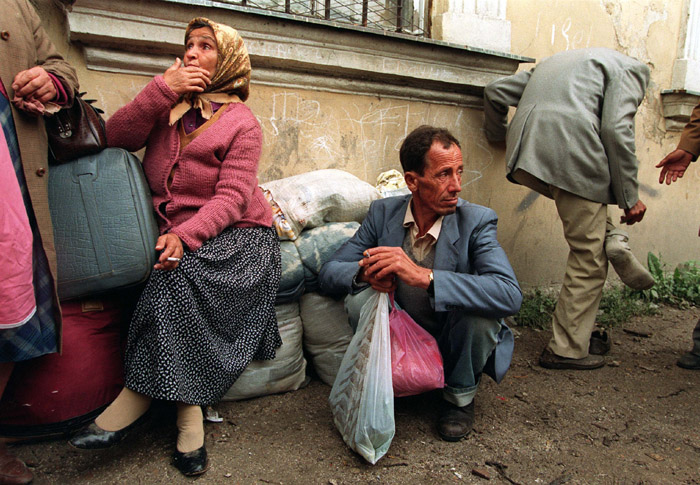The Context For Turmoil
Refugee and migrant crises in Europe have flooded the headlines of mainstream news outlets. Stories typically examine and cover the widespread relocation of individuals and the resulting impact on domestic politics in countries such as Germany, France, and Greece. However, one alarming aspect of the humanitarian crisis has not been addressed as extensively as others: the thousands of migrants flooding into Bosnia and Herzegovina.
According to Croatian interior minister Davor Bozinovic, “in the majority of cases, those persons are not refugees… but economic migrants.” Yet, no matter the motivating factors driving this heavy flow of migration, the fact that vast populations are willing to risk their lives in the pursuit of improved living conditions should present a major concern to the international community and the institutions committed to upholding human rights.
In 2018 alone, over 23,000 migrants, largely originating from the Middle East, fled their homelands and took shelter in Bosnian territory. This figure is more than 30 times the number of migrants that entered Bosnia the previous year. With anti-immigration sentiment growing among European Union states, the number of migrants choosing to relocate to nations bordering the E.U, such as Bosnia, is only estimated to increase.
While both the Bosnian government and NGOs have initiated measures to aid migrant communities, Bosnia continues to lack the capacity to properly accommodate the growing influx of newcomers. Worsening humanitarian conditions highlight the urgency of the crisis, and Bosnia is in desperate need of increased international assistance. Here are the top 3 facts regarding these conditions as well as the underlying background of Bosnia’s migrant crisis.
Top 3 Facts Regarding Bosnia’s Migrant Crisis
- The majority of migrants arrive, in descending order, from Pakistan, Bangladesh, Iraq, Syria, and Afghanistan. While many politicians such as Bozinovic may argue that the thousands fleeing their homelands are not in need of international protection because they are migrants rather than asylum-seeking refugees, the truth remains that the conditions they flee are gruesome. Challenges within these nations such as violence following militant group invasion, unstable regimes, and extreme poverty all contribute to the mass exodus of migrants. Wasim, one of hundreds Pakistani asylum seekers at the Vucjak Migrants and Refugees Camp in Bihac, Bosnia, hopes to eventually return home when the economic climate in Pakistan improves. However, the current state of affairs in Pakistan, where one in four citizens currently face extreme poverty, has forced him to seek improved circumstances in Europe. This is the case for many migrants who hold onto hope to someday return home in the future.
- Increasingly strict EU border patrol in countries such as Hungary, Slovenia, and Croatia has resulted in the rise of migrants pushed into Bosnia. Nationalism and far-right populism has resulted in widespread anti-immigration sentiment, resulting in various projects to shut out migrants. This includes the Croatian government’s spiked fence built at a border crossing shared with northwestern Bosnia. As a result of such restricted access in EU member states, migrants are turning instead to Bosnia. Following reports of Croatian police forces beating migrants, Amnesty International has recently accused the EU of violating human rights and “turning a blind eye on vicious assaults by the Croatian police, but also funding their activities.”
- While the UN, nonprofits, and the Bosnian government strive to meet the demand for migrant settlements, these organizations do not have sufficient resources to accommodate the rapidly increasing number of asylum seekers. Indeed, The Red Cross working in Bosnia lacks a proper, efficient, and organized means of medical assistance and food delivery to the abundance of migrants. Given these deteriorating conditions, Croatian Red Cross representative Katarina Zoric has affirmed that “We can no longer describe the situation (in Bosnia) as a migration crisis, as it has effectively transformed into an (all encompassing) humanitarian crisis.”
UN camps throughout the nation cannot meet the demand for aid. These camps are reaching maximum capacity and inhabitants are being forced to share their food with others. Furthermore, migrants are being resettled in the Bosnian Vučjak camp, which lacks basic resources such as toilets, electricity, and running water. While the EU has provided Bosnia with 2 million euros in emergency aid, the money serves only as a temporary fix to a far deeper issue.
An Imminent Challenge: Seasonal Change
As warned by aid workers, winter will pose a major challenge to the migrant community. Rapidly dropping temperatures combined with decreasing and deteriorating resources will prove dangerous to thousands crowded by Bosnian borders. Conditions have already reached the point in which migrants must share their blankets and halve their meals with strangers. Given these grave circumstances and the increasing arrival of migrants, it is critical that the international community provide aid to Bosnia.
Foreign Aid As a Possible Solution
The anti-immigration and anti-foreign sentiments pulsing through Europe combined with an ever-increasing number of migrants seeking safe and liveable conditions has proven to be incompatible. Non-state actors such as the United Nations and NGOs can only provide so much aid to migrants with food and shelter. To truly solve the problem of an influx of migrants would involve a fundamental shift from a growing anti-migrant mindset in Europe. This would arguably be achieved by these countries straying from the wave of populism currently crashing through the continent, evident not only in Croatia but also heavily in Poland, Italy, and Bulgaria. In tandem with the rise of populism, investment in foreign aid (particularly within the countries from which migrants are fleeing) has decreased in recent years.
Focusing on the source of a crisis through foreign aid, however, may be key to improving impoverished conditions in countries such as Pakistan and Bangladesh. While political issues within these countries may require a longer-term resolution with more intricate and personalized foreign policy details, economic concerns can be addressed now with aid. Investing in foundational factors for a country’s development such as education, medical assistance, and employment opportunities may directly improve the stability of the country, as well as economic circumstances in which these “economic migrants” (as referred to by Minister Bozinovic) find themselves. A subsequent reduction in the number of “economic migrants” entering Europe would then follow.
The views expressed by the author do not necessarily reflect those of the Glimpse from the Globe staff, editors or governors.







